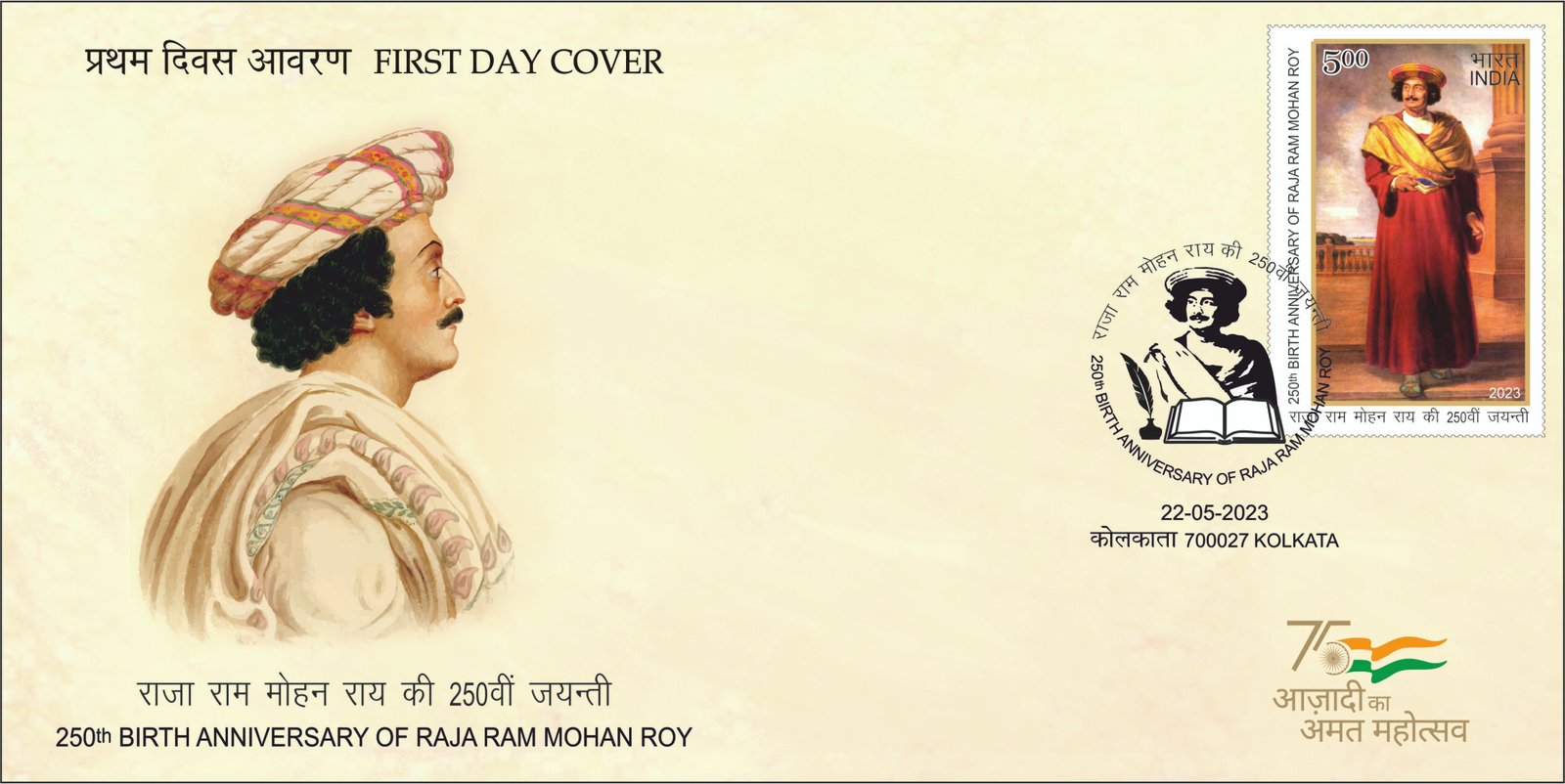250th Birth Anniversary of Raja Ram Mohan Roy

Technical Data
| Date of Issue | May 22, 2023 |
|---|---|
| Denomination | Rs. 5 |
| Quantity | 201,600 |
| Perforation | 14½ |
| Printer | Security Printing Press, Hyderabad |
| Printing Process | Wet Offset |
| Watermark | No Watermark |
| Colors | Multicolor |
| Credit (Designed By) | Sh. Sankha Samanta |
| Catalog Codes |
Yvert et Tellier IN 3552 Stanley Gibbons IN 3856 Colnect codes IN 2023.05.22-01 Michel IN 3893 |
| Themes | Anniversaries and Jubilees | Famous people | Historians | Men | Reformers |
Raja Ram Mohan Roy: The Father of Indian Renaissance
Early Life
Raja Ram Mohan Roy was born on 22 May 1772 in Radhanagar, Hooghly district of West Bengal. From an early age, he displayed intellectual brilliance and a deep concern for social reform. His knowledge of Sanskrit, Persian, Arabic, and later English allowed him to study both Indian scriptures and Western thought.
Pioneer of Social Reform
Ram Mohan Roy is remembered for his tireless crusade against social evils such as sati, child marriage, caste discrimination, polygamy, and untouchability. He strongly advocated property inheritance rights for women and championed the cause of widow dignity. His campaign to abolish the inhuman practice of sati led to its official ban in 1829.
Religious and Philosophical Contributions
Seeking to revive the pure and ethical principles of Vedanta as enshrined in the Upanishads, Roy preached the unity of God and opposed idol worship. In 1828, he co-founded the Brahmo Sabha, which later developed into the Brahmo Samaj, a reformist movement that reshaped Indian society and religion. He also founded the Atmiya Sabha and collaborated with the Unitarian Community, promoting rational, ethical, and humanistic ideals.
Education and Modern Thought
Raja Ram Mohan Roy believed that education was the key to social transformation. He established schools that introduced modern, English-based learning, while also valuing India’s cultural heritage. His vision integrated Western scientific knowledge with the best features of Indian tradition.
Role as Journalist and Political Thinker
Through his journals such as Sambad Kaumudi, he championed freedom of the press, separation of executive and judiciary, and greater Indian participation in governance. His writings influenced not only Indians but also European thinkers, strengthening cross-cultural dialogue.
Lasting Legacy
Raja Ram Mohan Roy passed away on 27 September 1833 at the age of 61, but his legacy continues to inspire. Known as the “Father of the Bengal Renaissance”, he laid the foundation for modern Indian society, blending tradition with reform, spirituality with rationality, and heritage with progress.
Commemorative Stamp
On the occasion of his 250th Birth Anniversary, the Department of Posts proudly issues a Commemorative Postage Stamp in honour of Raja Ram Mohan Roy – a visionary reformer, fearless crusader against social evils, pioneer of Indian journalism, and the guiding light of India’s Renaissance.
First Day Cover

